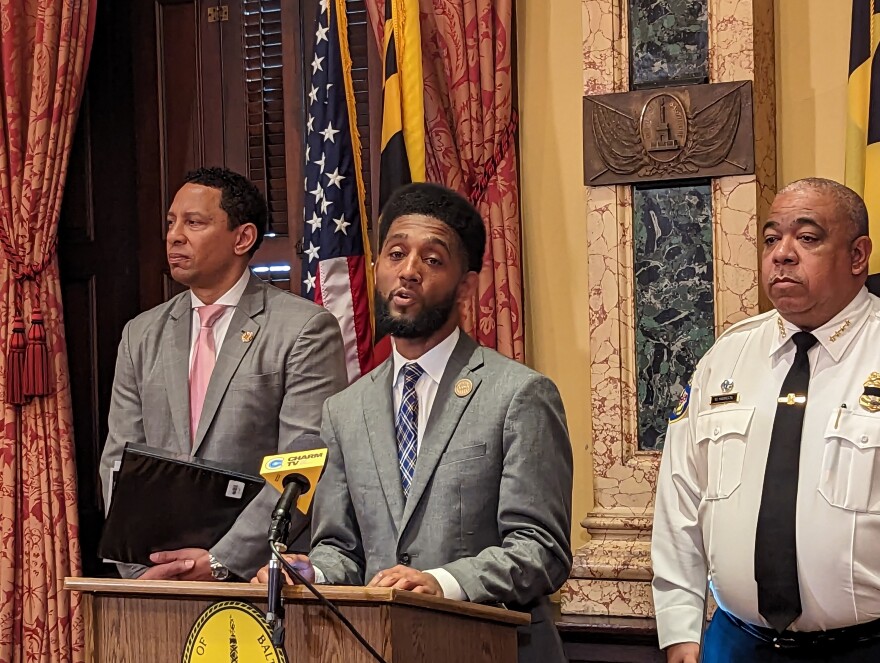Baltimore City leaders expect to enact a youth curfew, one of the strictest in the nation, slated to begin Memorial Day weekend, officials announced on Monday.
The last day of class for Baltimore City Public School students isn’t until June 13, but officials decided to announce the impending curfew after two teenagers were shot around 9 p.m. on Easter Sunday near the city’s Inner Harbor after a fight broke out among a large group during Spring Break. A 14-year-old and 16-year old were shot and transported to local hospitals with non-fatal injuries, according to the Baltimore City Police Department.
Baltimore City Mayor Brandon Scott was a lead supporter of youth curfew legislation during his tenure as a council member in 2014.
“Bringing Baltimore's curfew back is about providing our young people with resources and ensuring that they have a safe space during the summer months,” Scott said during the Monday afternoon press conference.
The latest youth curfew law has been on the books since 2016 but isn’t always enforced.
Any minor under the age of 14 will not be allowed outside the home unaccompanied by an adult between 9 p.m. and 6 a.m. every day. The curfew for youth between 14 years old and 16 years old is 11 p.m. to 6 a.m. each day.
But that will change this summer, Scott said.
“But my summer safety strategy is about more than the curfew,” he said. “This summer, we will make sure again, that our young people have safe activities to engage in like we did last summer.”
The mayor was flanked by Baltimore City Police Commissioner Michael Harrison and Baltimore City State’s Attorney Ivan Bates. Police Commissioner Harrison touted the lack of violence during the Baltimore Orioles baseball team home opener over the weekend and the Sole of the City Under Armor 10K run, both which required heavy police presence, he said.
In the coming weeks, it’s up to the Baltimore City Police Department to enforce the youth curfew law. When police detain a minor for violating curfew, it’s not considered an arrest and does not create a criminal record, according to the law.
Officials said the law is to encourage youth to seek alternative social services and not to criminalize youth existing in public. Any minors still outside the home after curfew may either be taken home or given a ride to a city-run Youth Connection Center, which will be operated out of city recreation centers this year, said the mayor. Staff at those centers are to notify the child’s guardian and “take appropriate measures to reduce the probability that the minor will commit a subsequent violation.” Parents or legal guardians of youth who violate curfew could face fines between $50 for the first time and $500 for repeat offenders.
“For those who are thinking this is solely about snatching young people off the streets and putting them in a room, no, this is about making sure that we know what is going on with those young people,” Scott said.
He added that it’s “not normal” for young people to be outside the home so late at night so many miles away from their homes. The mayor’s plan includes expanding the city’s summer programs and job opportunities for teens.
Mayor Scott has been criticized for the decision both online and by The Baltimore Sun’s Editorial Board. In 2016, a report published by the Campbell Collective, non-profit dedicated to reviewing public policy programs, found that youth curfew programs are “ineffective at reducing crime and victimization.”
During the press conference, some questioned whether a youth curfew would effectively reduce youth violence. In response, the mayor doubled down on his assertion that the intent is to connect youth with social services through the youth centers.
“None of us never we never said that the curfew was about preventing that incident from happening,” he said about the Inner Harbor shooting on April 9.







